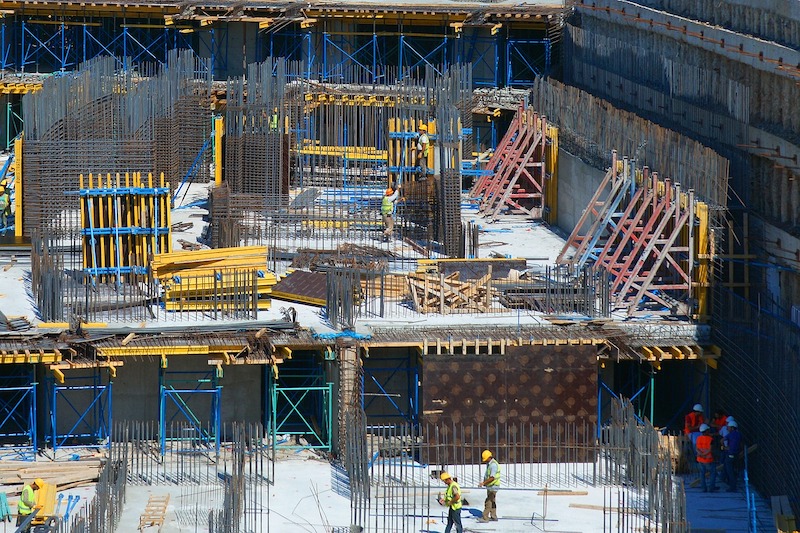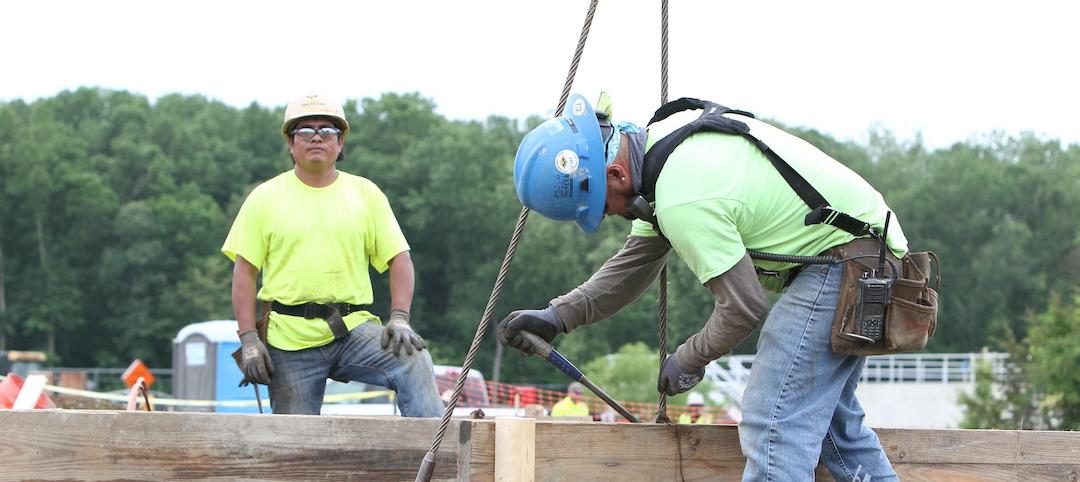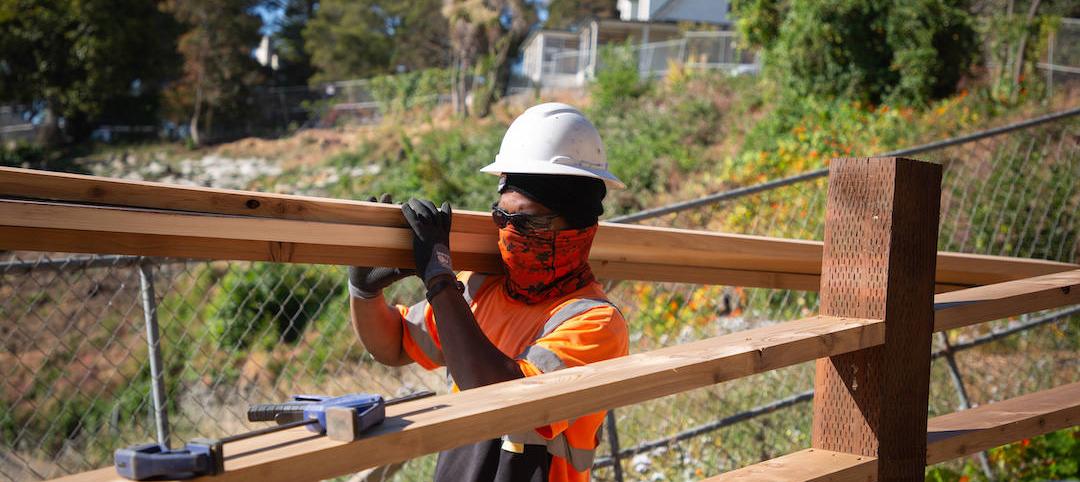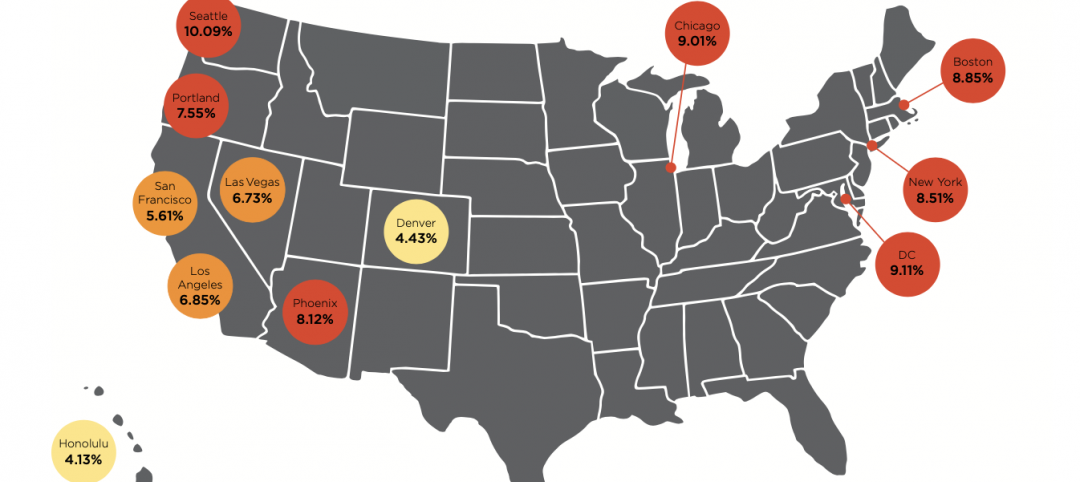Construction employment declined for the third time in the past four months in May as nonresidential contractors coped with lengthening and unpredictable delivery times that limited their ability to start or complete projects, according to an analysis by the Associated General Contractors of America of government data released today. Association officials added that many contractors report they are having a hard time finding qualified workers to hire as some people remain reluctant to return to work while their children are learning from home, or they are collecting elevated unemployment supplements.
“Steadily worsening production and delivery delays have exceeded even the record cost increases for numerous materials as the biggest headache for many nonresidential contractors,” said Ken Simonson, the association’s chief economist. “If they can’t get the materials, they can’t put employees to work.”
Seasonally adjusted construction employment in May totaled 7,423,000, a drop of 20,000 from the downwardly revised April total. Industry employment declined as well in April and February. The total in May remained 225,000 less than in February 2020, the high point before the pandemic drove construction employment down by more than a million jobs.
The gap widened in May between residential construction, which has experienced feverish demand for new and remodeled housing, and nonresidential construction, which has been declining, aside from a few niches. Residential construction firms—contractors working on new housing, additions, and remodeling—gained 1,900 employees during the month and employed 35,000 more workers (1.2%) in May than in the pre-pandemic peak month of February 2020. In contrast, the nonresidential sector—comprising nonresidential building, specialty trades, and heavy and civil engineering contractors—shed 21,800 jobs in May and employed 260,000 fewer workers or 5.6% less than in February 2020.
“Contractors are being told they must wait nearly a year to receive shipments of steel and 4-6 months for roofing materials,” Simonson noted. “These delays make it impossible to start some projects and to complete others, leaving contractors unable to keep workers employed. In addition, soaring prices for steel, lumber, and other materials are deterring owners from committing to going ahead with projects.”
Association officials urged Congress and the Biden administration to take steps to address the record materials price increases and supply chain bottlenecks. They said the President should end tariffs on key materials like lumber, steel, and aluminum. They added that Washington officials should look at ways to ease manufacturing and shipping backups. And they urged Congress to allow unemployment supplements to expire, as planned, after Labor Day.
“The decline in construction employment is likely less about a lack of demand as it is about the challenges contractors are facing in meeting that demand,” said Stephen E. Sandherr, the association’s chief executive officer. “Supply-chain problems and labor shortages are holding back what should otherwise be a much stronger recovery for the construction sector.”
Related Stories
Market Data | Jan 31, 2022
Canada's hotel construction pipeline ends 2021 with 262 projects and 35,325 rooms
At the close of 2021, projects under construction stand at 62 projects/8,100 rooms.
Market Data | Jan 27, 2022
Record high counts for franchise companies in the early planning stage at the end of Q4'21
Through year-end 2021, Marriott, Hilton, and IHG branded hotels represented 585 new hotel openings with 73,415 rooms.
Market Data | Jan 27, 2022
Dallas leads as the top market by project count in the U.S. hotel construction pipeline at year-end 2021
The market with the greatest number of projects already in the ground, at the end of the fourth quarter, is New York with 90 projects/14,513 rooms.
Market Data | Jan 26, 2022
2022 construction forecast: Healthcare, retail, industrial sectors to lead ‘healthy rebound’ for nonresidential construction
A panel of construction industry economists forecasts 5.4 percent growth for the nonresidential building sector in 2022, and a 6.1 percent bump in 2023.
Market Data | Jan 24, 2022
U.S. hotel construction pipeline stands at 4,814 projects/581,953 rooms at year-end 2021
Projects scheduled to start construction in the next 12 months stand at 1,821 projects/210,890 rooms at the end of the fourth quarter.
Market Data | Jan 19, 2022
Architecture firms end 2021 on a strong note
December’s Architectural Billings Index (ABI) score of 52.0 was an increase from 51.0 in November.
Market Data | Jan 13, 2022
Materials prices soar 20% in 2021 despite moderating in December
Most contractors in association survey list costs as top concern in 2022.
Market Data | Jan 12, 2022
Construction firms forsee growing demand for most types of projects
Seventy-four percent of firms plan to hire in 2022 despite supply-chain and labor challenges.
Market Data | Jan 7, 2022
Construction adds 22,000 jobs in December
Jobless rate falls to 5% as ongoing nonresidential recovery offsets rare dip in residential total.
Market Data | Jan 6, 2022
Inflation tempers optimism about construction in North America
Rider Levett Bucknall’s latest report cites labor shortages and supply chain snags among causes for cost increases.

















